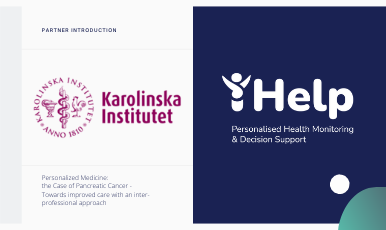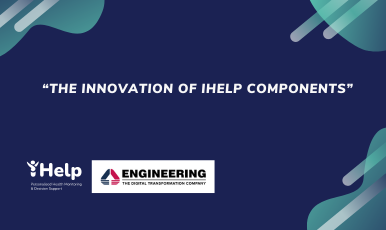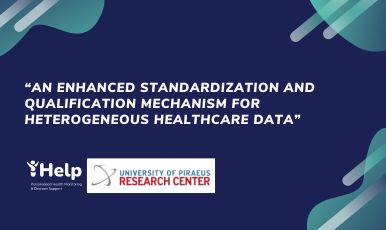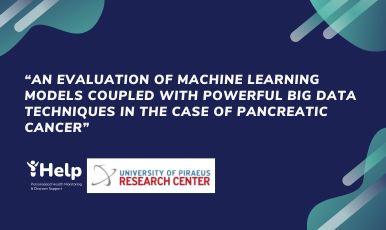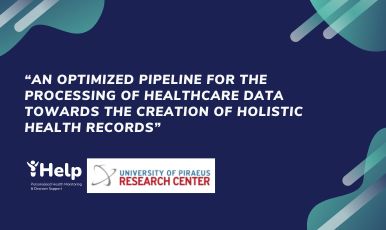Healthcare is facing challenges that can only be met by cross- and interdisciplinary solutions based on scientific evidence. One of these challenges is how to integrate digital tools into existing healthcare organizations and work processes, a development that holds many promises for the future. An example of the benefits of digitalization in healthcare is due to the ability of collecting, storing, and analyzing health-related data on a large scale – one of the main ideas behind the iHelp project. In order to make this idea a reality, it is necessary to work with a holistic approach, combining the competencies of individuals from a variety of backgrounds such as medical, clinical, data science, engineering and programming, and to apply high ethical standards of independence from various interest groups.
Working together in a project like iHelp can (especially in hindsight of COVID-19, social distancing, and travel restrictions) seem quite daunting. It requires time and effort to adapt communication and learn to understand each other’s terminology and preconditions. Exchanging information and knowledge between medical and technical experts has sometimes led to us being lost in translation but persistent and inquisitive questions help us to get closer to the solutions that are now being developed. Assumptions and abbreviations that are clear in one field of science might not be so obvious to the next, sometimes all that is needed is to ask a simple question – like “what is an API?” or “how do you motivate at-risk individuals to stop smoking?”. As exemplified in the iHelp-project, the exchange of knowledge is what leads us closer to fulfilling the potential of digitalization in healthcare. It has been of importance throughout the project for every expert field to follow the development of other fields, for the medical experts to understand the technical components and vice versa. Although sometimes difficult, this interaction has been invigorating. For everyone attending the hybrid GA-meeting in Athens, we can hopefully all agree that it was very valuable to meet in person and learn about the background of all participants. Understanding each other’s strengths and limits unlocks the potential to explore how our different disciplines tangents and interacts and how we can create value from these intersections.
The contribution of Karolinska Institutet (KI) to the iHelp project, in addition to clinical expertise and experiences of investigating the potentials and values of medical digital solutions, is the perspective of public health and an understanding of the process of policy making and implementation of prevention practices in healthcare. Exploring the interface between medical and technical disciplines is truly worth the investment of time and energy in relation to pancreatic cancer, where prevention is key. Having insight into the dynamics between clinicians, patients, and society; the design and management of knowledge bases in medicine for use in clinical decision support systems, patient concerns regarding privacy when sharing health data, and the spread of information (and sometimes misinformation) are just some examples of KI’s expertise. Generating knowledge on these issues in the iHelp project will hopefully contribute to the motivation of patients to make changes in their lifestyle behaviours. The challenges and opportunities are truly global, and the results of the project should be welcomed by patients, practitioners, and health policy makers. In our capacity as partners in the iHelp project, KI will be instrumental in this.

